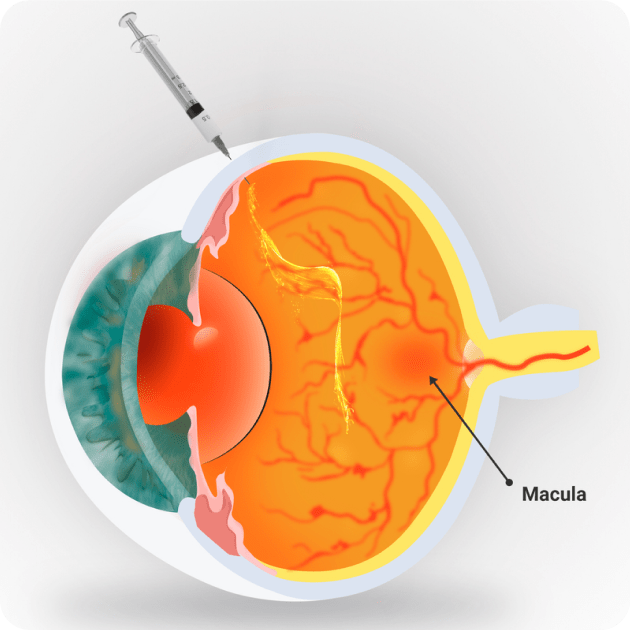

When it comes to medical procedures, especially ones involving our eyes, it’s normal to feel nervous and apprehensive. This is particularly common for patients experiencing their first intravitreal injection treatment.
An intravitreal injection is a medical procedure performed by an eye specialist to treat various eye conditions, most commonly for retinal disease treatment. It involves the injection of medication directly into the vitreous, the clear gel-like fluid that fills the inside of the eye. This enables the medication to be delivered directly to the retina or nearby structures, ensuring it reaches its intended destination at the right concentration, making it more effective and reducing potential side effects associated with systemic retinal disease treatments.
While concerns about having an injection into your eye are natural, understanding the procedure and knowing the precautions your eye specialist takes can alleviate fears. The following are some common questions patients often ask when discussing intravitreal treatment.

One of the most common fears is pain. While no one enjoys getting a needle in their eye, it’s important to know that the procedure is always performed using local anaesthesia. This means that your eye is numbed, and you should only feel minimal discomfort, if any, during the procedure. Some people describe the sensation as a gentle push or pressure feeling. For most patients, the thought of the procedure is worse than the procedure itself.
Using a very fine needle, the eye specialist injects the eye through the sclera (the white part of the eye). The needle is inserted whilst the patient is looking down, so they do not see the needle coming towards their eye.
The patient is sat in a reclined position, and the eye specialist uses a small clip, called a speculum, to hold the eyelids apart and stop them from blinking. The procedure itself is very fast, and often over before any movement can be made.
An intravitreal injection is performed in a minor procedure room within the ophthalmic clinic. The risk of infection is very low. We follow strict sterilization protocols; the eye and the surrounding skin are carefully ‘cleaned’ with antiseptic to minimize the risk of infection.
Vision can be blurry following your eye injection. This is usually due to the eye drops instilled to examine your eye prior to your treatment and not from the procedure itself. Some people may see small blobs of the injected medication floating in their vision, but this is only temporary.
You can also have a foreign body sensation in the eye for around 24 hours which is due to the antiseptic used to avoid infection.
Intravitreal injections have revolutionised the treatment of many eye diseases, offering a targeted and effective way to deliver medication to the eye. While the thought of an injection into your eye may seem daunting, it is a well-tolerated and commonly performed procedure that has been used to treat and preserve vision for countless individuals. If you or a loved one requires an intravitreal injection, you can rest assured that this procedure is conducted with precision and care by an experienced eye specialist at Nexus EyeCare.
Copyright © 2023 Nexus Eye Care | Trans4m Business Consulting – Website Design & SEO | Privacy Policy | ^